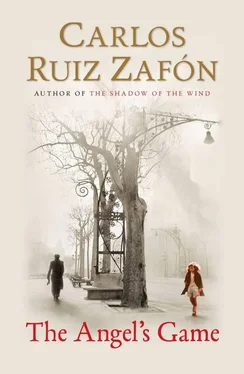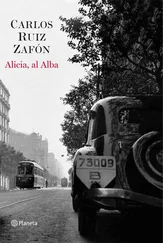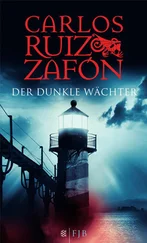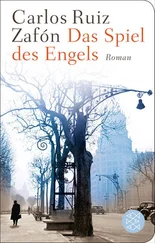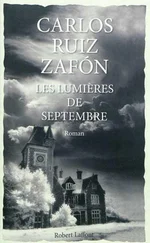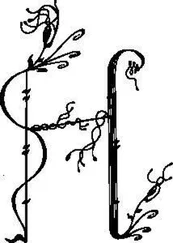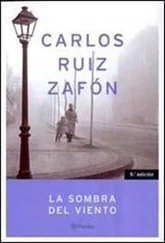I allowed a solemn pause by way of silent ovation. Vidal was a keen opera-goer and had picked up the tempo and style of the great arias. He never missed his appointment with Puccini in the Liceo family box. He was one of the few – not counting the poor souls crammed together in the gods – who went there to listen to the music he loved so much, a music that tended to inspire the grandiloquent speeches with which at times he regaled me, as he was doing on that day.
‘What?’ asked Vidal defiantly.
‘That last paragraph rings a bell.’
I had caught him red-handed. He sighed and nodded.
‘It’s from Murder in the Liceo,’ admitted Vidal. ‘The final scene where Miranda LaFleur shoots the wicked marquis who has broken her heart, by betraying her during one night of passion in the nuptial suite of the Hotel Colón, in the arms of the Tsar’s spy Svetlana Ivanova.’
‘That’s what I thought. You couldn’t have made a better choice. It’s your most outstanding novel, Don Pedro.’
Vidal smiled at the compliment and considered whether or not to light another cigarette.
‘Which doesn’t mean there isn’t some truth in what I say,’ he concluded.
Vidal sat on the windowsill, but not without first placing a handkerchief on it so as to avoid soiling his classy trousers. I saw that his Hispano-Suiza was parked below, on the corner of Calle Princesa. The chauffeur, Manuel, was polishing the chrome with a rag as if it were a sculpture by Rodin. Manuel had always reminded me of my father, men of the same generation who had suffered too much misfortune and whose memories were written on their faces. I had heard some of the servants at Villa Helius say that Manuel Sagnier had done a long stretch in prison and that when he’d come out he had suffered hardship for years because nobody would offer him a job except as a stevedore, unloading sacks and crates on the docks, a job for which by then he no longer had the requisite youth or health. Rumour had it that one day, Manuel, risking his own life, had saved Vidal from being run over by a tram. In gratitude, when Pedro Vidal heard of the poor man’s dire situation, he decided to offer him a job and the possibility of moving, with his wife and daughter, into a small apartment above the Villa Helius coach house. He assured him that little Cristina would study with the same tutors who came every day to his father’s house on Avenida Pearson to teach the cubs of the Vidal dynasty, and his wife could work as seamstress to the family. He had been thinking of buying one of the first automobiles that were soon to appear on sale in Barcelona and if Manuel would agree to take instruction in the art of driving and forget the trap and the wagon, Vidal would be needing a chauffeur, because in those days gentlemen didn’t lay their hands on combustion machines nor any device with a gaseous exhaust. Manuel, naturally, accepted. Following his rescue from penury, the official version assured us all that Manuel Sagnier and his family felt a blind devotion for Vidal, eternal champion of the dispossessed. I didn’t know whether to believe this story or to attribute it to the long string of legends woven around the image of the benevolent aristocrat that Vidal cultivated. Sometimes it seemed as if all that remained for him to do was to appear wrapped in a halo before some orphaned shepherdess.
‘You’ve got that rascally look about you, the one you get when you’re harbouring wicked thoughts,’ Vidal remarked. ‘What are you scheming?’
‘Nothing. I was thinking about how kind you are, Don Pedro.’
‘At your age and in your position, cynicism opens no doors.’
‘That explains everything.’
‘Go on, say hello to good old Manuel. He’s always asking after you.’
I looked out of the window, and when he saw me, the driver, who always treated me like a gentleman and not the bumpkin I was, waved up at me. I returned the greeting. Sitting on the passenger seat was his daughter, Cristina, a creature of pale skin and well-defined lips who was a couple of years older than me and had taken my breath away ever since I saw her the first time Vidal invited me to visit Villa Helius.
‘Don’t stare at her so much; you’ll break her,’ mumbled Vidal behind my back.
I turned round and met with the Machiavellian face that Vidal reserved for matters of the heart and other noble parts of the body.
‘I don’t know what you’re talking about.’
‘Never a truer word spoken,’ replied Vidal. ‘So, what are you going to do about tonight?’
I read the note once again and hesitated.
‘Do you frequent this type of venue, Don Pedro?’
‘I haven’t paid for a woman since I was fifteen years old and then, technically, it was my father who paid,’ replied Vidal without bragging. ‘But don’t look a gift horse in the mouth…’
‘I don’t know, Don Pedro…’
‘Of course you know.’
Vidal patted me on the back as he walked towards the door.
‘There are seven hours left to midnight,’ he said. ‘You might like to have a nap and gather your strength.’
I looked out of the window and saw him approach the car. Manuel opened the door and Vidal flopped onto the back seat. I heard the engine of the Hispano-Suiza deploy its symphony of pistons. At that moment Cristina looked up towards my window. I smiled at her, but realised that she didn’t remember who I was. A moment later she looked away and Vidal’s grand carriage sped off towards its own world.
In those days, the street lamps and illuminated signs of Calle Nou de la Rambla projected a corridor of light through the shadows of the Raval quarter. On either pavement, cabarets, dance halls and other ill-defined venues jostled cheek by jowl with all-night establishments that specialised in arcane remedies for venereal diseases, condoms and douches, while a motley crew, from gentlemen of some cachet to sailors from ships docked in the port, mixed with all sorts of extravagant characters who lived only for the night. On either side of the street, narrow alleyways, buried in mist, housed a string of brothels of ever-decreasing quality.
El Ensueño occupied the top storey of a building. On the ground floor was a music hall with large posters depicting a dancer clad in a diaphanous toga that did nothing to hide her charms, holding in her arms a black snake whose forked tongue seemed to be kissing her lips.
‘Eva Montenegro and the Tango of Death’, the poster announced in bold letters. ‘The Queen of the Night, for six evenings only – no further performances. With the guest appearance of Mesmero, the mind reader who will reveal your most intimate secrets.’
Next to the main entrance was a narrow door behind which rose a long staircase with its walls painted red. I went up the stairs and stood in front of a large carved oak door adorned with a brass knocker in the shape of a nymph wearing a modest clover leaf over her pubis. I knocked a couple of times and waited, shying away from my reflection in the tinted mirror that covered most of the adjoining wall. I was debating the possibility of hotfooting it out of the place when the door opened and a middle-aged woman, her hair completely white and tied neatly in a bun, smiled at me calmly.
‘You must be Señor David Martín.’
Nobody had ever called me ‘señor’ in all my life, and the formality caught me by surprise.
‘That’s me.’
‘Please be kind enough to follow me.’
I followed her down a short corridor that led into a spacious round room, the walls of which were covered in red velvet dimly lit by lamps. The ceiling was formed of an enamelled crystal dome from which hung a glass chandelier. Under the chandelier stood a mahogany table holding an enormous gramophone that whispered an operatic aria.
Читать дальше
